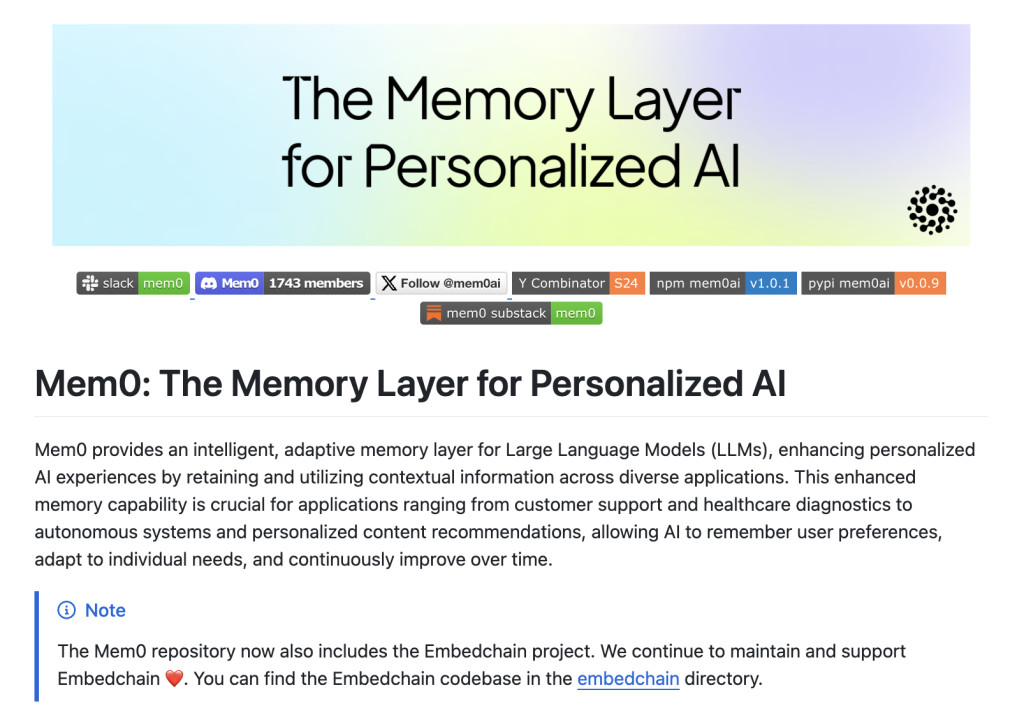In the digital age, personalized experiences have become essential. Whether in customer support, healthcare diagnostics, or content recommendations, people expect interactions with technology to be tailored to their specific needs and preferences. However, creating a truly personalized experience can be challenging. Traditional AI systems cannot often remember and adapt based on past interactions, resulting in generic and less effective responses.
Some solutions address this by storing user data and preferences, but they have limitations. Basic memory functions in AI can temporarily retain user preferences but do not adapt or improve over time. Additionally, these systems can be complex to integrate into existing applications, requiring significant infrastructure and technical expertise.Â
Meet Mem0: the Memory Layer for Personalized AI. It offers a new solution with its intelligent, adaptive memory layer designed for Large Language Models (LLMs). This advanced memory system enhances personalized AI experiences by retaining and utilizing contextual information across various applications. Mem0’s memory capabilities are especially valuable for applications like customer support and healthcare diagnostics, where remembering user preferences and adapting to individual needs can significantly improve outcomes. The Mem0 repository also includes the Embedchain project, ensuring continued support and maintenance.
Mem0’s core features showcase its powerful capabilities. It provides multi-level memory retention, encompassing user, session, and AI agent memories. This ensures that AI interactions become more personalized and relevant over time. The adaptive personalization feature allows Mem0 to continuously improve based on interactions, making it smarter and more effective with each use. Developers will find Mem0’s API simple to integrate into various applications, promoting cross-platform consistency for uniform behavior across devices. Additionally, Mem0 offers a managed service, providing a hassle-free hosted solution for those who prefer not to set up the infrastructure themselves.
In terms of advanced usage, Mem0 can be configured to use Qdrant as a vector store, enhancing its performance and scalability in production environments. This flexibility ensures that Mem0 can meet the demands of different applications and user requirements.
In conclusion, Mem0 addresses the critical need for personalized AI experiences by offering an intelligent, adaptive memory layer for LLMs. While traditional solutions fall short in adapting and improving over time, Mem0’s multi-level memory retention and adaptive personalization set it apart. Its developer-friendly API and managed service option further simplify integration and usage. With Mem0, AI can remember, adapt, and continuously improve, making interactions more meaningful and effective across various applications.
The post Meet Mem0: The Memory Layer for Personalized AI that Provides an Intelligent, Adaptive Memory Layer for Large Language Models (LLMs) appeared first on MarkTechPost.
Source: Read MoreÂ

